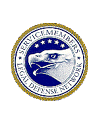
With recruiting shortfalls in the military, the Defense Department needs to look elsewhere. Some estimates say there are 41,000 LGBT Americans who are ready to sign up for duty
August 05 2005 12:00 AM EST
November 17 2015 5:28 AM EST
By continuing to use our site, you agree to our Private Policy and Terms of Use.

The Army needs a few good men and women. According to the Army's Chief of Staff, recruiting levels haven't dipped this low since 1999, the last time the Army was not able to meet its annual goal for new enlistees.
The story behind the men and women the Army cannot find is one of real consequence: U.S. troops on the ground in Iraq and Afghanistan are dealing with a severe shortage of Arabic translators. Even the recruiters needed to recruit new soldiers are growing fewer and farther between. A lack of labor is a very real concern during peacetime; during the War on Terror it routinely makes front-page news. So it seems perplexing that military leaders have not focused on a simple solution that could shrink, or even eliminate, the recruiting shortfall: getting rid of the military's "don't ask, don't tell" ban on gay troops.
"There are thousands of men and women out there who want to serve this country," Gen. Peter Pace, incoming Chairman of the Joint Chiefs, recently told Congress. Statistically he's right; strategically he's missing a prime target. Gary J. Gates, a senior research fellow at the Williams Project at the University of California, Los Angeles, School of Law, recently reported that as many as 41,000 new recruits could be found if the gay ban were repealed. That's enough people to entirely staff half a dozen aircraft carriers, and significantly more than the 30,000 extra troops the Army Chief of Staff said he needed in October. It is also far more than the number of recruits--32,879--the Army must find in order to meet its annual goal for 2005.
Here is the way Gates's theory works: The percentage of gay men in the military is currently below the percentage of gay men in the country at large. Removing "don't ask, don't tell," a significant deterrent to military service for those men, is the equivalent of taking the "Gays Not Welcome" sign off the Pentagon door. The percentage of gay men in the armed forces could then mirror their representation in the general population, with 34,000 potential new recruits. Factor in the Reserves and the National Guard, and the number reaches 41,000.
So why aren't Secretary of Defense Donald Rumsfeld and other Pentagon leaders insisting on rolling back the ban on gays and lesbians? It may have something to do with the naysayers who have long advocated the exclusion of qualified gay Americans from the services. Conservative activists like Elaine Donnelly, who has advised Congress and the White House to turn away gays who want to serve, balks at the idea of an army with openly gay recruits. Heterosexuals, such activists allege, will not want to serve alongside gay Americans.
Nonsense. In fact, not a single military that has no ban--and the list includes Israel, Canada, Australia, Britain, and others--has reported a decrease in the number of heterosexuals signing up for service. Not a single American soldier has said, as far as I can determine, that they were unable to serve alongside an openly gay British troop in Iraq or Afghanistan. Not a single soldier from either side seems bothered about the fact that gays are already serving in the military and doing their jobs without incident.
Unlike Donnelly, who has never served in the armed forces, a growing number of those who have served believe the time has come to welcome those 41,000 potential recruits. "Congress should change the law that imposes the gay ban," Lt. Col. Allen Bishop recently wrote in the Army Times. Brig. Gen. Evelyn Foote (Ret.), one of the first women to achieve that rank, has said: "Our armed forces should be able to recruit every qualified, capable American to protect our homeland, regardless of their sexual orientation. 'Don't ask, don't tell' is not only unnecessary and discriminatory, it is also detrimental to our military readiness."
Perhaps Lt. Col. Thomas J. Raleigh (Ret.) summarized it best, though, when he said in the San Francisco Chronicle that, quite simply, "The arguments against gays serving are both spurious and shallow."
The Pentagon should be seeking their counsel. LGBT Americans have an Army--perhaps as large as 41,000 strong--ready to sign up for duty. Our military will be stronger, our homeland more secure, and our liberty better protected when the "Gays Not Welcome" sign comes off the door.